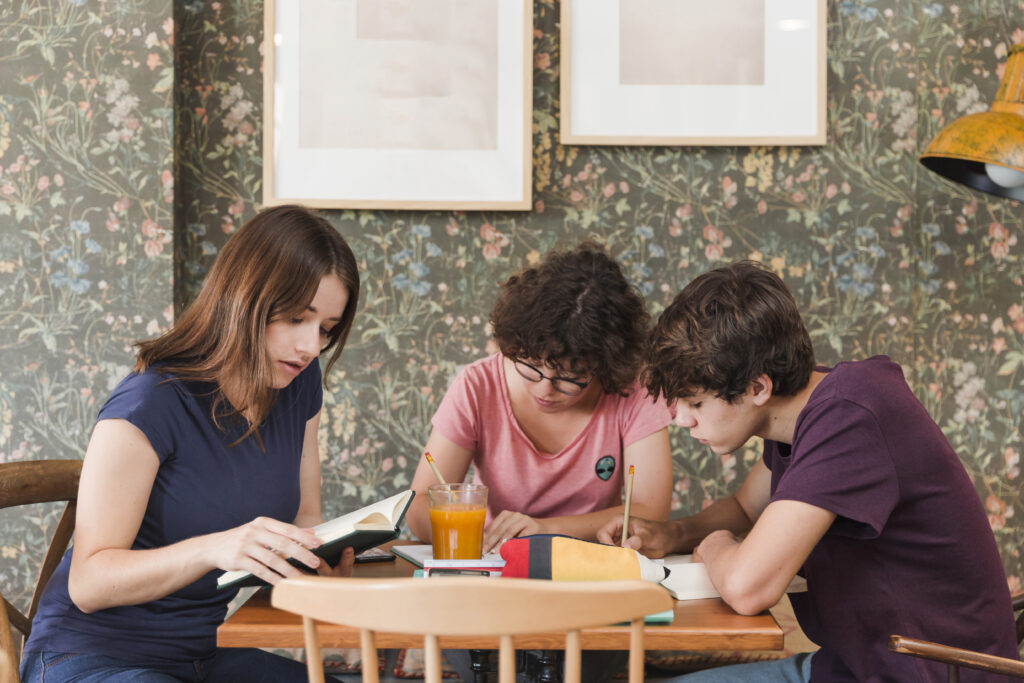
Pedagogy is the methods and strategies applied by educators to teach their students. It includes understanding the students’ needs, developing engaging lesson plans, and employing successful teaching techniques to bring about critical thinking and all-around development.
Pedagogy is absolutely essential for effective teaching because it enables teachers to adopt various ways of learning, to engage students actively, and to develop critical thinking. A pedagogy includes clear communication, develops a constructive learning environment, and supports student-centred learning.
Different Pedagogical Approaches
- Constructivist Teaching
The constructivist teaching methodology involves active learning where students themselves construct their own meaning by experiences and reflections. Problem-solving, critical thinking, and collaboration are encouraged in such learning, and teachers are more of facilitators than knowledge transmitters.
- Collaborative Learning
Students in collaborative learning work together as groups to solve problems, share ideas, and learn from one another. Communication, teamwork, and critical thinking are enhanced because learning is a collective activity that leads to deeper conceptual understanding.
- Inquiry-Based Learning
Inquiry-based learning encourages inquiry, where students are interested in exploring solutions to their queries, constructing knowledge, and therefore asking questions. It fosters a culture of critical thinking and problem-solving, encouraging students to take responsibility for their educational journey.
- Experiential and Hands-On Learning
Experiential and hands-on learning involves students by activity, real-life exposure, and experimentation. It fosters deeper understanding, improves retention, and connects theory with practice. It results in active engagement and skill building in meaningful and real-world environments.
Modern Pedagogical Strategies
- Technology-Enhanced Learning
Technology-enhanced learning brings digital tools and resources into education to enhance interaction, accessibility, and performance. It allows for interactive contents, personalized learning experiences, global connectivity, and develops critical skills in digital literacy and adaptability in the modern context of education.
- Differentiated Instruction
Differentiated instruction is a teaching approach that caters to the diverse students’ needs, abilities, and learning styles. It incorporates differences in content, processes, and assessments that ensure every student has an opportunity to meet his or her potential in a respectful and supportive learning environment.
- Project-Based Learning
Project-based learning (PBL) involves hands-on projects where students are encouraged to explore real-world problems. It develops critical thinking, collaboration, and problem-solving skills through practical application of academic concepts in real-world settings that encourage deeper understanding and skill development.
How to Choose the Right Pedagogical Approach?
The choice of pedagogical approach depends on several factors, such as:
- Learning intent: Align the teaching with the objectives and outcomes to be achieved.
- Student requirements: The pedagogy must accommodate the diverse learning capabilities of students, ensuring inclusivity.
- Subject matter: The teaching approach has to be customised based on the nature of the subject.
- Resources: Leverage available resources such as smart boards, explanations through videos, and the use of flashcards and charts to make learning fun and engaging.
- Adaptation: Use of modern pedagogical methods like problem-based learning, flipped classroom methods, etc., arouses interest among students.
- Assessments: Make sure that the child is assessed not only based on score but also other factors such as active listening in the classroom, participation in debates, group discussions, etc.
Conclusion
Pedagogy and teaching methods play an important role in the effective formation of learning experiences. Therefore, the appropriate approach can be chosen with an understanding of the students’ needs, curriculum goals, and contextual factors. A good method fosters engagement, inclusivity, and skill development. Being flexible and innovative, educators ensure meaningful, impactful, and lifelong learning opportunities for all.
Check: Best Educational Institute in Bangalore
Frequently Asked Questions (FAQs)
- What does Pedagogy mean in Education?
Pedagogy in education involves the art and science of teaching. It includes the various tactics, methods, and ways educators use to support, facilitate, and advance knowledge, as well as ensure that students’ intellectual, social, and emotional growth. - What are the Main Types of Teaching Methods in Pedagogy?
Differentiated instruction, constructivist methods, blended learning, technology-based methods, experiential learning, collaborative learning, and inquiry-based learning are a few main types of teaching methods in pedagogy. - How does Pedagogy Impact Student Learning Outcomes?
Pedagogy directly affects student learning outcomes by engaging students and catering to diverse learning styles. The most effective pedagogy would result in deeper understanding, critical thinking, and skill development. This would positively impact academic performance and overall growth. - What is the Role of Technology in Modern Pedagogy?
Technology in modern pedagogy enables learning through the use of interactivity, personalization of learning experiences, and global resources. Technology improves collaboration, develops digital literacy, and enables instant feedback, making learning more interesting, accessible, and adaptable to diverse needs. - How can Teachers Choose the Best Pedagogical Approach for their Classroom?
Teachers can choose the best pedagogical approach based on the needs of the children, subject matter, and resource availability. They should adapt according to the feedback and assessment of learning outcomes. Technology should be leveraged to enhance student engagement.

